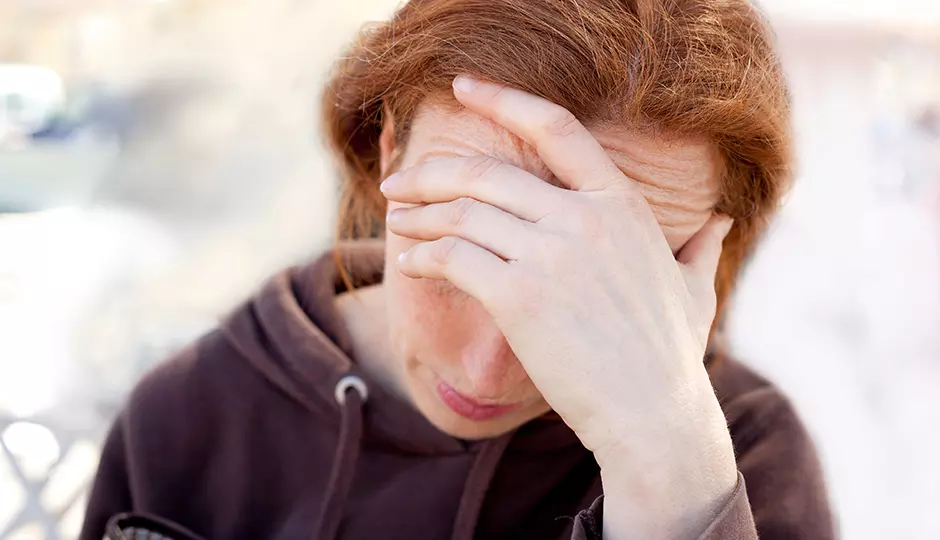Although hair loss for men and women can result from a range of causes, including both environmental and genetic influences, a strong connection has been established between stress and hair loss.
Short-term (acute) stress may temporarily enhance immune function, but long-term (chronic) stress can disrupt immune balance—either suppressing it or triggering excessive activity—ultimately leading to inflammation.
What Does Stress-Related Hair Loss Look Like?
While everyone has a unique physiology and experiences hair loss differently, the onset of stress-related hair loss is typically sudden. It's not uncommon for people with stress-related hair loss to experience heavy shedding that fills a brush, and noticeable clumps in sink drains or on their pillow in days rather than weeks. Depending on the type of hair loss, symptoms may include patches of hair thinning, especially at the crown, circular bald spots, or uneven breakage and missing hairs in self-pulled regions.
Types of Stress-Related Hair Loss
Telogen Effluvium
Telogen effluvium is a hair loss condition that results from a severe physical or emotional trauma, such as a major illness, surgery, or bereavement. A severe trauma can force up to a third of your hair follicles into the resting phase of the hair growth cycle, leading to noticeable shedding. Excessive shedding typically occurs three to four months after the stressor, and hair usually regrows within six to 12 months once stress is managed and underlying factors are addressed.
Alopecia Areata
Alopecia areata is an autoimmune condition where the body attacks hair follicles, causing round bald patches on the scalp or body. Severe stress can trigger immune dysregulation and initiate this response, though there is evidence that genetics also plays a role. The onset of the condition is variable, and hair may regrow and fall out repeatedly.
Trichotillomania
Trichotillomania is an impulse control disorder characterized by recurrent pulling of hair from the scalp, eyebrows, or other areas to relieve tension. Stress and boredom often precede episodes, creating a vicious cycle of pulling and emotional discomfort. While frequently caused by emotional or psychological stress, trichotillomania can lead to increased emotional and psychological issues, with behavioral therapies being the cornerstone of treatment.
Stress Management
High levels of stress can affect every aspect of your health, and reducing stress is key to reversing hair loss. Some of the steps you can take to manage your stress better include:
- Sleep: Aim for 7–8 hours nightly to regulate cortisol and support hair growth.
- Exercise: Boosts endorphins and circulation. Try yoga, walking, or dancing, whatever feels restorative.
- Mindfulness & Breathing: Deep breathing, meditation, and progressive muscle relaxation help calm the nervous system.
- Therapy or Support Groups: Talking through stress can reduce its impact on your body and hair.
Seek Professional Help
While it's normal to lose some hair every day, when you start seeing clumps of hair on your pillow, in the drain, or your brush, it can be alarming. Stress-related hair loss is often temporary, but you should schedule a consultation with our team immediately if you experience:
- Sudden, patchy, or total hair loss
- Signs of scalp inflammation (redness, scaling)
- Persistent shedding beyond six months
Early diagnosis helps rule out other possible causes, such as nutritional deficiencies or other medical conditions, and tailor a solution to meet your specific needs. To learn more about the relationship between stress and hair loss and what you can do to prevent the loss of your hair, contact us to schedule your FREE initial consultation.



